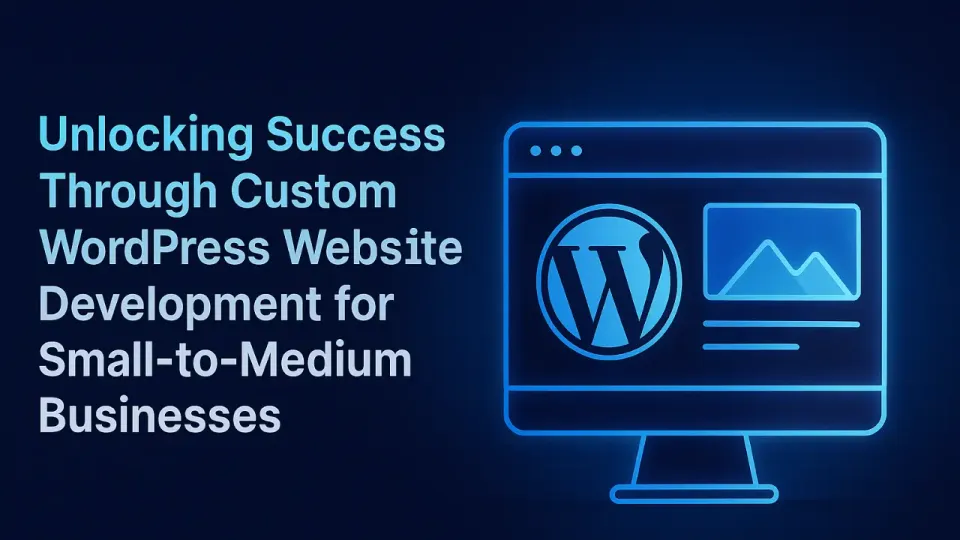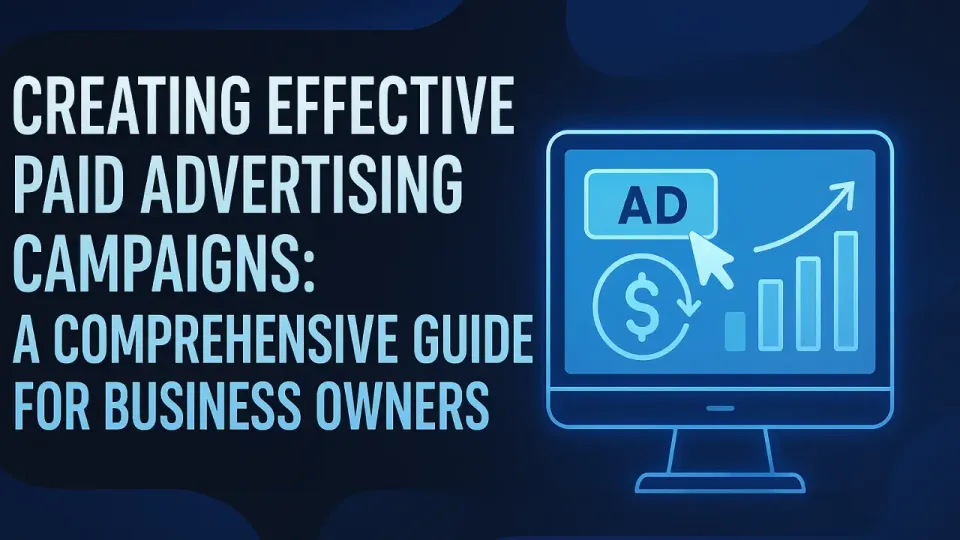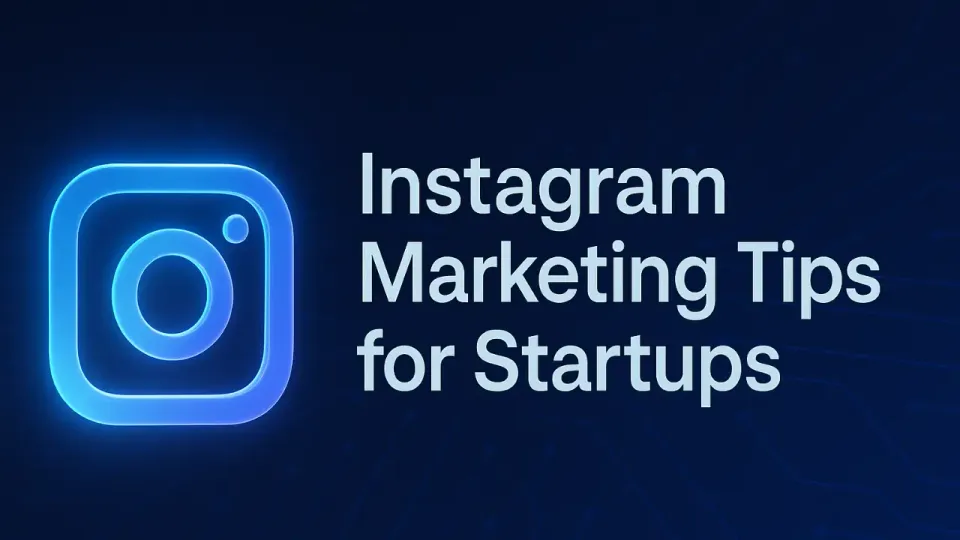Wix or Ghost? Choosing the Right Website Platform for Your Needs

When it comes to building a website, the platform you choose can make all the difference. Whether you're creating a personal blog, an online store, or a content-driven website, selecting the right tools can help you achieve your goals more efficiently. With so many options available, it can be overwhelming to find the perfect fit for your specific needs.
Among the most popular website-building platforms, Wix and Ghost stand out for very different reasons. Wix is known for its user-friendly interface and versatile drag-and-drop design capabilities, making it a go-to for small businesses and users with little to no technical experience. On the other hand, Ghost is a more specialized platform, built with content creators and publishers in mind, offering a streamlined and efficient experience for those focused on blogging and digital publishing.
In this article, we'll dive into a detailed comparison of Wix and Ghost, breaking down their features, strengths, and ideal use cases to help you determine which platform is best suited to your website needs. Whether you're seeking simplicity, flexibility, or performance, this guide will help you make an informed decision.
Overview of Wix
What is Wix?
Wix is a leading cloud-based website builder that allows users to create websites without needing any coding or design experience. It’s a versatile, all-in-one platform, ideal for beginners and small business owners looking for a quick and easy way to get online. With Wix, users can build anything from personal blogs and online portfolios to fully functioning e-commerce stores, all with the help of its intuitive drag-and-drop editor.
Founded in 2006, Wix has since gained a massive user base thanks to its flexibility and ease of use. The platform is designed to accommodate a wide range of industries, with pre-built templates and features that cater to various business needs. Wix’s primary strength is that it empowers anyone, regardless of technical skills, to create a visually appealing, functional website in just a few hours.
Key Features of Wix
Wix offers a variety of features that make it one of the most popular website builders on the market:
- Drag-and-Drop Interface: Wix’s user-friendly editor allows you to move and place elements exactly where you want them on your page, without needing any technical skills.
- Pre-Designed Templates: Wix boasts hundreds of professionally designed templates, catering to multiple industries such as restaurants, portfolios, blogs, and online stores.
- Built-in SEO Tools: Wix provides basic SEO tools to help users optimize their websites for search engines. You can easily edit meta tags, alt text, and other SEO elements directly from the platform.
- App Marketplace: Wix’s app marketplace offers a wide range of plugins and third-party integrations to enhance your site’s functionality. From booking systems and contact forms to email marketing and analytics tools, you can expand your website’s capabilities with a few clicks.
- Hosting and Domain Services: Wix provides fully-managed hosting, so users don’t need to worry about technical aspects like server management or uptime. The platform also offers domain registration services, making it an all-in-one solution for website creation.
Who Should Use Wix?
Wix is best suited for users who prioritize simplicity and speed when setting up a website. If you are a small business owner, freelancer, or creative professional looking to build a website without diving into complex technical details, Wix is a great option. It is especially ideal for those who want a variety of design choices and customization options but don’t want to deal with the backend complexities of running a site.
With Wix, you can have a functional, visually appealing site up and running in just a few hours, making it perfect for users who want to focus more on content and business operations than on the technical side of website development.
Overview of Ghost
What is Ghost?
Ghost is an open-source content management system (CMS) designed primarily for professional bloggers, writers, and publishers. Launched in 2013, Ghost was built with a singular focus: to provide a fast, streamlined platform for content creation and publishing. Unlike many website builders that try to do everything, Ghost excels at one thing—delivering a clean, efficient experience for those who prioritize content over complex design features.
Ghost is known for its minimalist interface and speed. It is a powerful tool for anyone who wants to focus on content-driven websites, such as blogs, online publications, newsletters, and membership-based platforms. Although Ghost is simple in appearance, it offers advanced features for those who want to customize their site further, making it highly adaptable for both beginners and developers.
Key Features of Ghost
Ghost’s features are tailored to the needs of content creators, with a focus on speed, simplicity, and optimization for publishing. Key features include:
- Clean, Minimalistic Design: Ghost’s platform is built with minimalism in mind, offering users a distraction-free writing and publishing experience. The default themes are sleek, with a strong focus on readability, allowing your content to take center stage.
- Content Management & Publishing Tools: Ghost offers a powerful editor designed to streamline the process of writing and publishing. Its Markdown editor is easy to use, helping content creators publish quickly while maintaining control over formatting and structure.
- Built-in SEO and AMP Support: Ghost automatically optimizes your content for search engines and comes with built-in support for AMP (Accelerated Mobile Pages), helping your content load faster on mobile devices while improving your site's search ranking.
- Membership and Subscription Features: One of Ghost’s standout features is its ability to support memberships and paid subscriptions. You can easily set up subscription tiers and monetize your content, making it ideal for bloggers, newsletters, and publications looking to build a revenue stream.
- Flexible Hosting Options: You can choose between hosting your Ghost site on Ghost’s managed hosting platform (Ghost Pro) or self-hosting the software on your own server, giving developers more control over customization and scalability.
Who Should Use Ghost?
Ghost is designed for content creators who are serious about publishing. Whether you’re a professional blogger, a digital publisher, or someone who wants to build a membership-driven website, Ghost offers a streamlined, efficient platform to bring your content to life. It is ideal for users who prioritize speed, performance, and simplicity over extensive design features.
For developers, Ghost’s open-source nature means you can build fully customized experiences if needed. On the other hand, non-developers will appreciate Ghost’s intuitive interface and straightforward publishing workflow. If you’re focused on building a high-quality, content-first website—whether it’s a blog, newsletter, or media platform—Ghost is a perfect fit.
Wix vs Ghost: Key Differences
When comparing Wix and Ghost, it’s important to consider what each platform is built for. While both can help you create a website, they cater to vastly different needs and user types. Let’s break down the key differences to help you understand which platform aligns best with your goals.
Ease of Use
- Wix: Wix is designed with beginners in mind. Its drag-and-drop interface makes building a website as simple as clicking and dragging elements into place. You don’t need to write a single line of code to create a visually appealing site, making it a perfect choice for users who want to get up and running quickly without any technical knowledge. Additionally, Wix offers a large library of pre-designed templates, which further speeds up the process of site creation.
- Ghost: Ghost is simpler in terms of its layout, but it caters to a more technically savvy audience, especially if you plan to self-host. While Ghost’s editor is intuitive and designed to make content publishing easy, it doesn’t offer the same drag-and-drop customization as Wix. If you’re using Ghost Pro (Ghost’s managed hosting service), the setup process is relatively simple, but users looking to self-host may need some technical skills for installation and maintenance.
Customization and Flexibility
- Wix: Wix provides an enormous range of customization options through its drag-and-drop editor and app marketplace. You can choose from hundreds of templates and add apps for additional functionality such as e-commerce, booking systems, and live chat. However, while Wix offers flexibility, advanced customizations are limited to the platform’s predefined features and options, which can be restrictive for users looking for deep customization.
- Ghost: Ghost’s design is more streamlined, focusing heavily on content and performance rather than visual customization. The platform provides a clean, minimalistic aesthetic out of the box, which is ideal for content-focused websites. For those looking to deeply customize their site, Ghost’s headless CMS architecture offers advanced flexibility. You can decouple the front-end design from the content management system, allowing developers to create completely custom designs and functionality. This makes Ghost more flexible for experienced users but requires more technical expertise compared to Wix.
E-commerce and Monetization
- Wix: Wix excels at providing built-in e-commerce solutions. Its robust e-commerce features allow users to create online stores, manage inventory, accept payments, and even set up shipping options. Additionally, Wix supports a wide range of third-party apps that can enhance your store’s capabilities, making it a good option for small businesses and entrepreneurs looking to sell products online.
- Ghost: Ghost is not built with traditional e-commerce in mind. Instead, it focuses on content monetization through membership and subscription models. If your website’s primary goal is to sell content—such as exclusive articles, newsletters, or digital memberships—Ghost’s built-in features make it easy to set up tiered subscriptions and accept payments. This makes Ghost a great choice for content creators and publishers who want to monetize their work through memberships, but it’s not designed for selling physical products.
Performance and Speed
- Wix: Wix is an all-in-one platform that handles hosting, design, and management for you. However, due to its extensive features and flexibility, Wix can sometimes be slower, especially as you add more apps and plugins to your site. While Wix does offer built-in SEO tools and mobile optimization, users who prioritize speed above all else may find its performance slightly lagging compared to more streamlined platforms like Ghost.
- Ghost: Performance is one of Ghost’s key strengths. Ghost is lightweight and built for speed, making it an excellent choice for content-driven websites where fast loading times and a smooth user experience are critical. With built-in SEO optimizations, AMP support, and a focus on simplicity, Ghost offers one of the fastest web experiences available, which can be particularly important for publishers and bloggers who need to keep readers engaged.
Pricing
- Wix: Wix offers a range of pricing plans, starting from free (with Wix ads) to premium plans that unlock additional features such as e-commerce, custom domains, and advanced SEO tools. The pricing is based on a monthly or yearly subscription, with more expensive tiers offering more robust capabilities like unlimited bandwidth and online payments.
- Ghost: Ghost’s pricing is straightforward, but it operates differently than Wix. Ghost Pro (the managed hosting option) starts at a higher price point than Wix, but it includes powerful publishing features and membership options. Ghost also offers a free, self-hosted version for those who are comfortable managing their own servers, though this requires more technical expertise and additional costs for hosting. Overall, Ghost’s pricing is geared towards businesses or individuals focused on content publishing and monetization, rather than general-purpose website building.
Which Platform is Right for You?
Choosing between Wix and Ghost depends on your specific needs, the type of website you want to build, and your level of technical expertise. Both platforms are powerful in their own right, but they cater to different audiences and use cases. Let’s take a closer look at which platform is better suited for various types of users.
Wix: Best for Simple Websites and Small Businesses
Wix is the ideal choice for anyone looking to create a website without any technical hassle. Its user-friendly drag-and-drop editor makes it perfect for beginners, freelancers, and small business owners who want a polished website without having to write code. Whether you’re launching a portfolio, a restaurant site, or an online store, Wix offers a range of templates and built-in tools that simplify the process.
If you prioritize ease of use and quick setup, and your primary focus is on showcasing your brand or services rather than managing complex content systems, Wix is the best platform for you. Its rich template library, integrated apps, and strong e-commerce capabilities make it an all-in-one solution for small businesses, creatives, and entrepreneurs. Plus, Wix’s pricing plans are flexible, allowing you to start small and scale as your business grows.
You should choose Wix if:
- You need a website fast and don’t want to deal with technical setup.
- You want a drag-and-drop editor with plenty of customization options.
- You’re building a portfolio, small business site, personal blog, or e-commerce store.
- You prefer an all-in-one platform with hosting, domain services, and built-in apps.
Ghost: Best for Content Creators and Publishing
If your main focus is on content creation and publishing—whether it’s blogging, running an online publication, or building a subscription-based newsletter—Ghost is the superior choice. Ghost’s minimalist interface, built-in SEO tools, and performance-optimized architecture make it ideal for writers, bloggers, and digital publishers who want a clean, streamlined platform that helps them produce and share content quickly.
Ghost shines when it comes to monetization through memberships and subscriptions, making it perfect for creators who are looking to sell premium content or build a community around their work. It’s especially beneficial for content-driven websites, where fast loading times and a distraction-free user experience are key. While Ghost does require a bit more technical knowledge if you opt for self-hosting, its managed hosting service, Ghost Pro, makes it easier for non-developers to get started.
You should choose Ghost if:
- You’re a blogger, writer, or publisher focused on content creation and distribution.
- You want to build a membership-based or subscription-driven website.
- Speed, performance, and SEO optimization are top priorities.
- You’re comfortable with a minimalist, content-first approach to website design.
Making the Final Decision
Ultimately, the choice between Wix and Ghost comes down to the type of website you want to build and the user experience you’re looking for. If you’re a small business owner or someone who needs a versatile, easy-to-use website builder with tons of customization options, Wix is likely your best bet. On the other hand, if you’re a content creator or publisher who values performance, simplicity, and content-focused features, Ghost will provide the tools you need to succeed.
Before making your decision, consider your goals, technical abilities, and how much control you want over the design and functionality of your site. Both platforms offer unique strengths, so pick the one that aligns best with your vision.
Conclusion
Choosing the right platform for your website is crucial to its success, and both Wix and Ghost offer distinct advantages depending on your needs. Wix is a versatile, beginner-friendly platform that empowers users to quickly create beautiful, functional websites with no coding required. Its drag-and-drop editor, extensive template library, and built-in apps make it a great all-in-one solution for small businesses, freelancers, and individuals who want a quick, easy way to get online.
On the other hand, Ghost is a powerful, content-first platform built with professional bloggers, writers, and publishers in mind. Its minimalist design, speed, and focus on content make it an ideal choice for those who prioritize performance and content-driven websites. With built-in membership and subscription features, Ghost offers a simple yet effective solution for monetizing content and building a dedicated audience.
Ultimately, your choice between Wix and Ghost should be driven by your specific goals. If you’re looking for a highly customizable, easy-to-use website builder with a wide range of features, Wix is the way to go. However, if you’re a content creator or publisher focused on delivering a fast, content-heavy experience with options for monetization, Ghost will provide the right tools to help you succeed.
Before making your final decision, think about the long-term goals for your website, how much technical involvement you’re comfortable with, and the kind of experience you want to offer your audience. Both platforms have their strengths, so choosing the one that best aligns with your needs will ensure your website thrives.
"Joining this community has been a game-changer for staying updated on the latest trends & events!" - John B.





